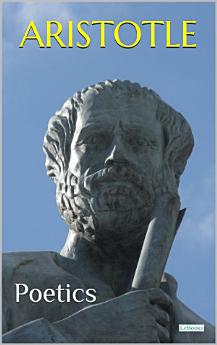POETICS: Aristotle
About this ebook
Since its composition, Poetics has been regarded as a seminal work in literary criticism and aesthetics. Its exploration of universal concepts such as mimesis (imitation), the unity of plot, and the role of the poet in society has established it as a cornerstone in the study of literature and drama. The treatise's analytical framework continues to influence writers, critics, and philosophers, offering enduring insights into the construction and impact of narrative art.
The work's enduring relevance lies in its capacity to illuminate the structural and emotional dimensions of storytelling. By examining the components that evoke profound human responses, Poetics invites readers and creators to reflect on the nature of art, the mechanics of narrative, and the ways in which literature mirrors and shapes human experience.
About the author
Aristotle was a Greek philosopher and polymath, widely recognized as one of the most influential figures in Western philosophy and science. Born in Stagira, a city in northern Greece, Aristotle is known for his works that explore themes such as logic, ethics, politics, metaphysics, and natural sciences. As a student of Plato and later the teacher of Alexander the Great, his writings laid the foundation for much of Western intellectual history.
In 343 BCE, Aristotle was invited by King Philip II of Macedon to tutor his son, Alexander, who would later become known as Alexander the Great. After his time at the Macedonian court, Aristotle returned to Athens and founded his own school, the Lyceum, where he taught and conducted research for twelve years.
Aristotle's influence extended far beyond his own time. During the Middle Ages, his works were extensively studied by Islamic philosophers such as Avicenna and Averroes, and later integrated into Christian theology by scholars like Thomas Aquinas, earning him the title "The Philosopher" in medieval Europe.
His empirical approach to studying nature, observing and classifying living beings, laid the groundwork for the development of biology. Although some of his scientific theories were later corrected, his method of systematic observation and classification remained a core principle in scientific inquiry








